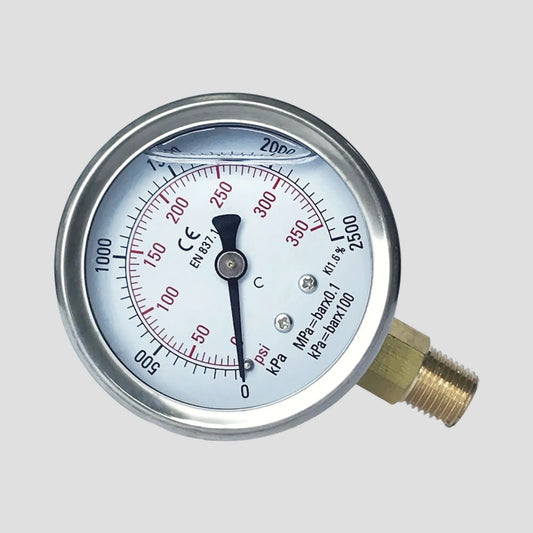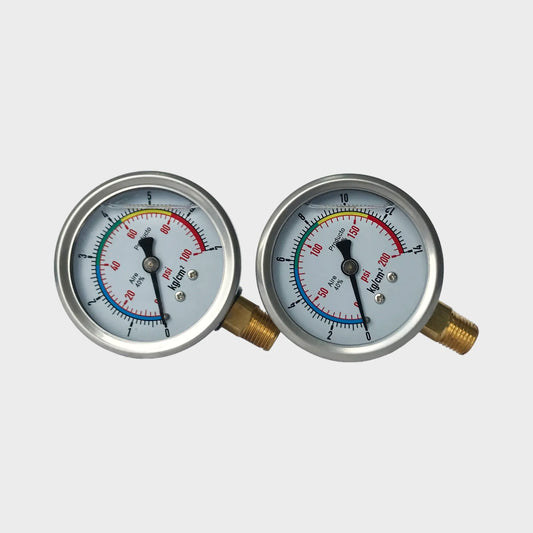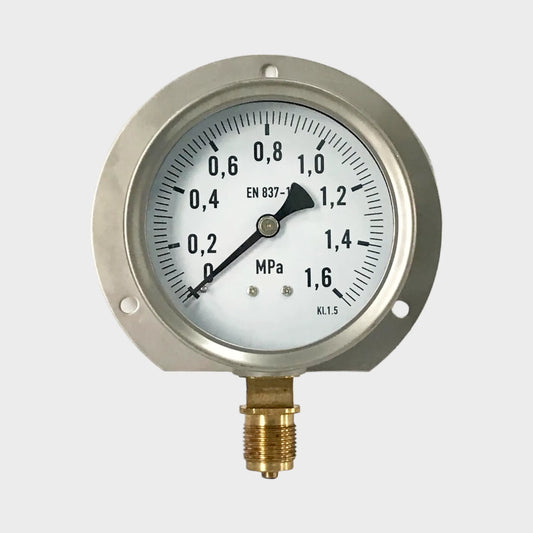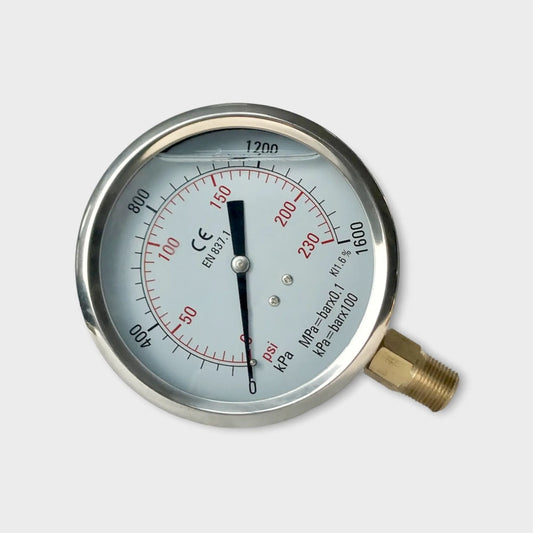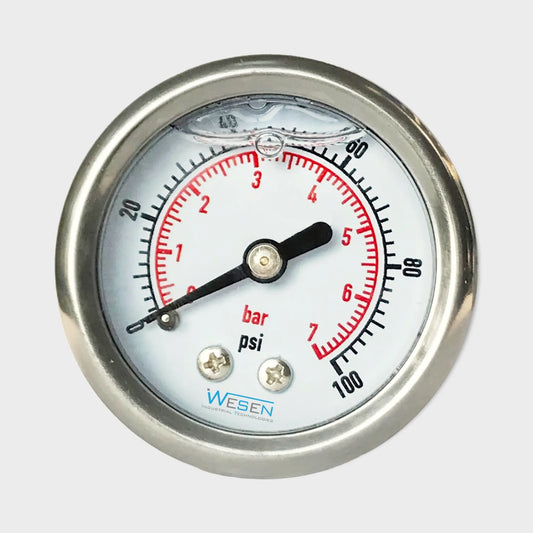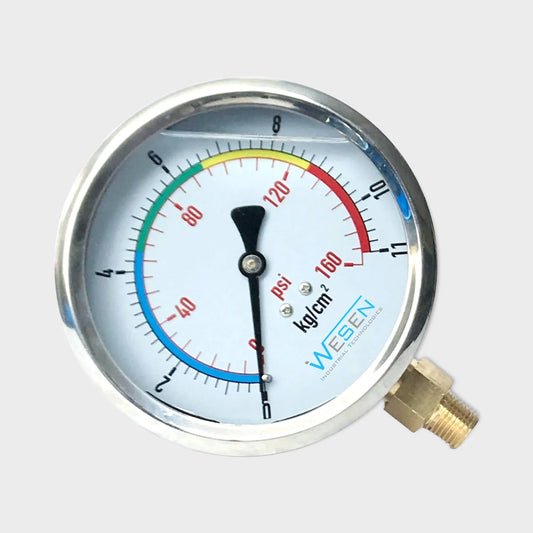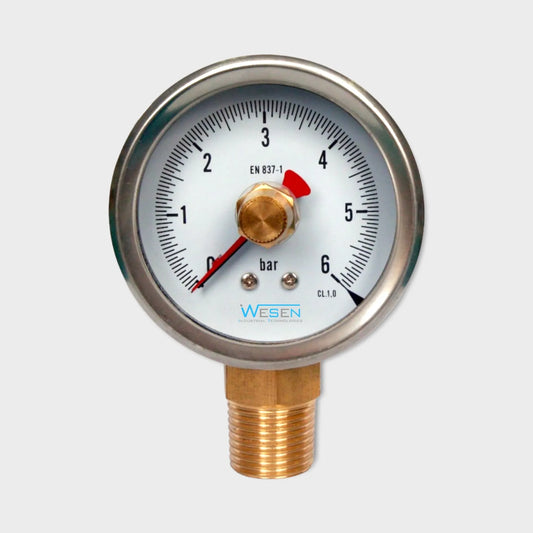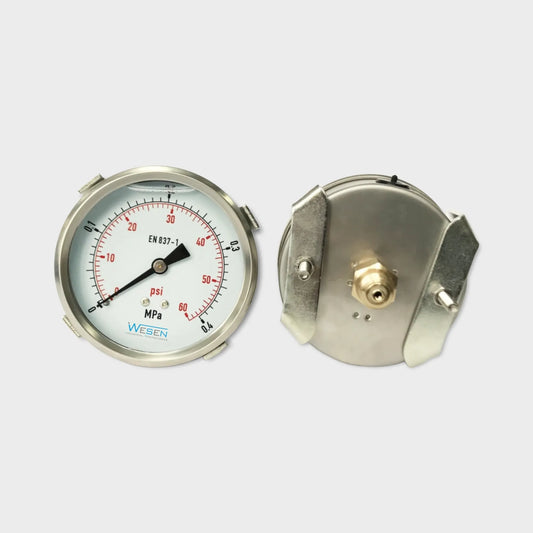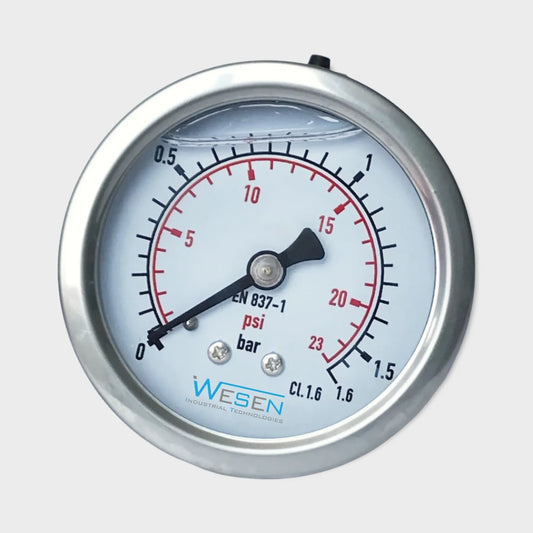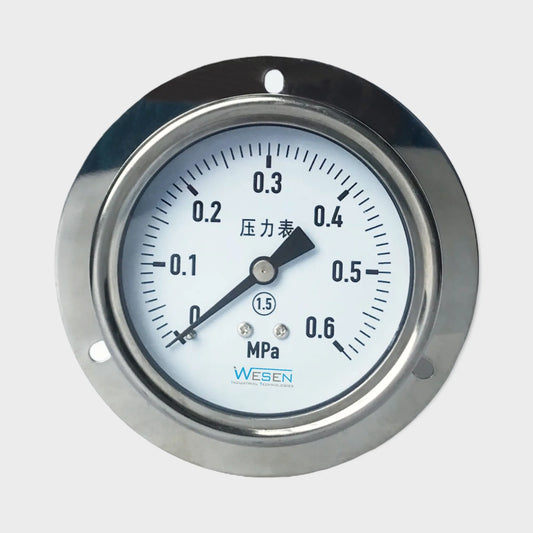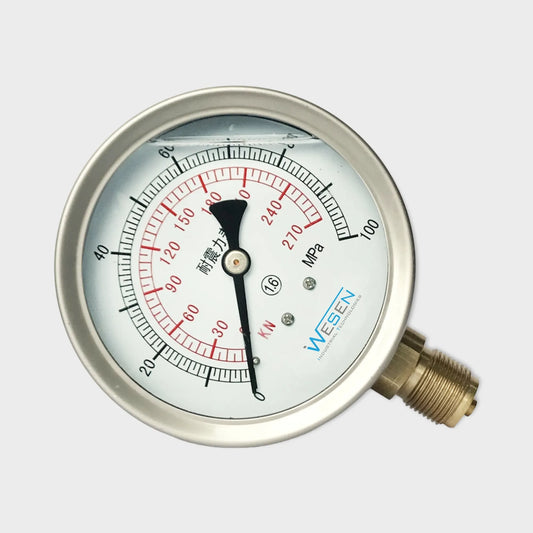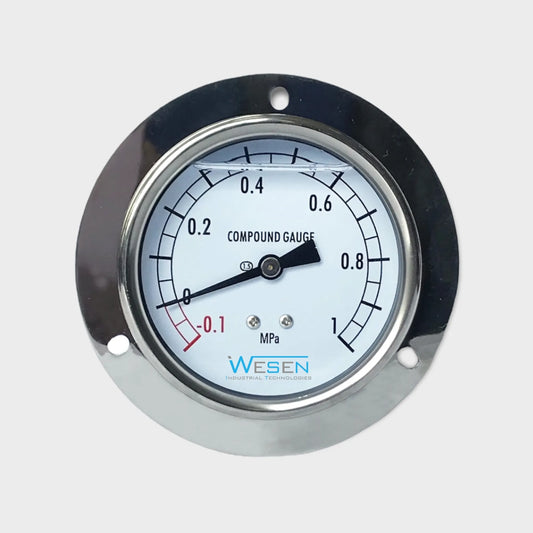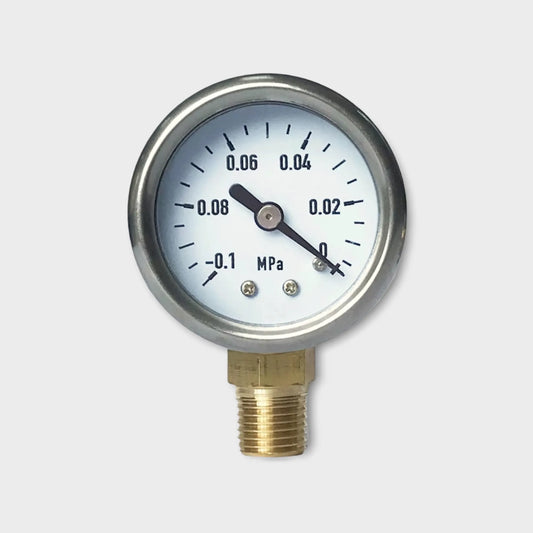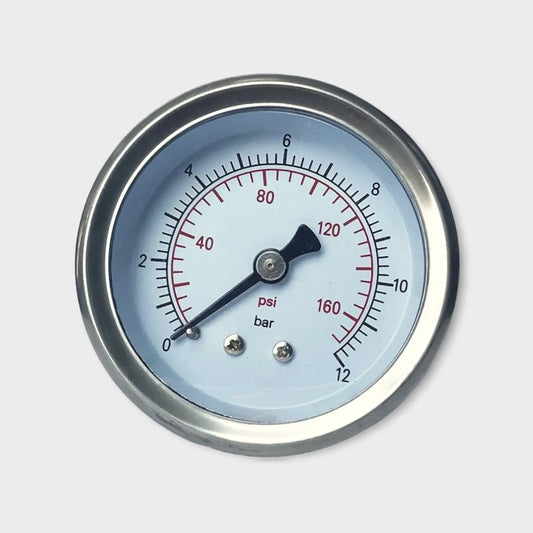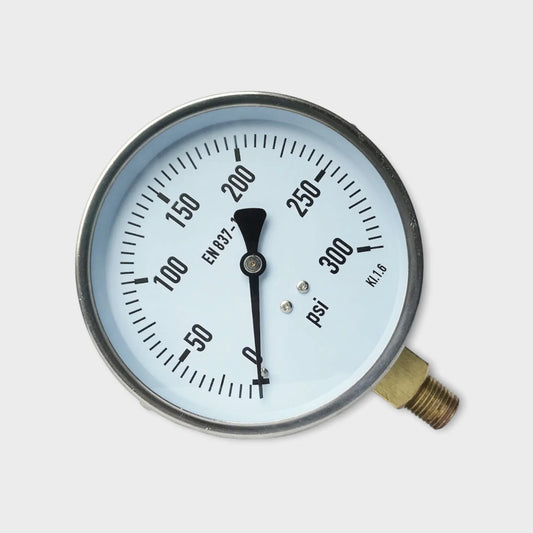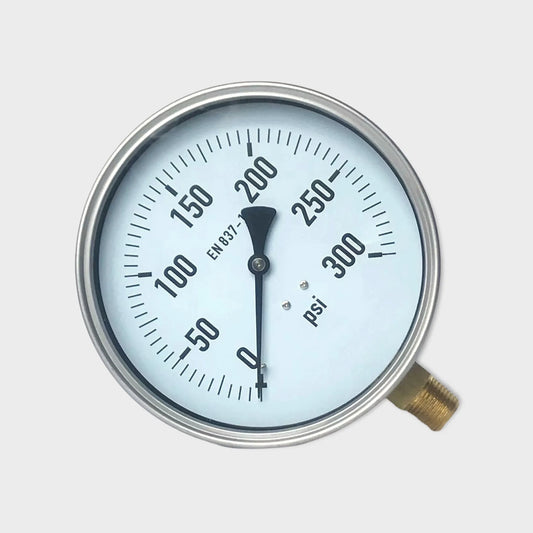-
Tube Manometer Glycerin Filled Brass Connection
Regular price $3.28 USDRegular priceUnit price per -
2.5" Gas Manometer 100 Psi 200 Psi With Glycerine Filled
Regular price $3.79 USDRegular priceUnit price per -
Pressure Gauge Flange Mount Bottom Connection Bourdon Type
Regular price $10.98 USDRegular priceUnit price per -
100mm Dial Glycerin Filled Pressure Gauge 1600 kPa
Regular price $7.58 USDRegular priceUnit price per -
40mm Dial Pressure Gauge With Glycerine Filled Center Back
Regular price $1.79 USDRegular priceUnit price per -
4 Inch Dial Air Pressure Gauge 0 To 11 kg/cm2 Mechanical Manometer
Regular price $7.58 USDRegular priceUnit price per -
Manometer 6 bar Dual Needle Brass Connection Pressure Gauge
Regular price $3.16 USDRegular priceUnit price per -
60 Psi Gas Pressure Gauge SS316 Case Glycerin Manometer
Regular price $6.99 USDRegular priceUnit price per -
63mm Pressure Gauge Filled with Glycerin SS316L Case Center Back Mount
Regular price $3.79 USDRegular priceUnit price per -
Air Pneumatic Pressure Gauge Wall Mount 0.6 MPa
Regular price $6.38 USDRegular priceUnit price per -
Mpa Pressure Gauge Filled With Glycerin 4 Inch Dial
Regular price $9.98 USDRegular priceUnit price per -
Pressure Gauge Panel Mount with Flange 3 Hole Stainless Steel Case Filled with Glycerin
Regular price $5.70 USDRegular priceUnit price per -
Vacuum Manometer Gauge Radial Mount 40mm Dial
Regular price $1.49 USDRegular priceUnit price per -
63mm Stainless Steel Pressure Gauge Well Pump Application 12 Bar
Regular price $3.20 USDRegular priceUnit price per -
Air Pressure Gauge Meter 100mm Dial Lower Mount 300 Psi
Regular price $3.99 USDRegular priceUnit price per -
Manometer For Gas Pressure 150mm Stainless Steel Pressure Gauge 300 PSI
Regular price $9.98 USDRegular priceUnit price per
Understanding Water Pressure Gauges: Essential Components for Efficient Water Systems
Introduction:
Water pressure gauges are indispensable instruments in plumbing and water management systems, providing crucial insights into water pressure levels. From residential setups to industrial applications, these gauges play a pivotal role in maintaining optimal water pressure and ensuring efficient operation. In this article, we explore the significance of water pressure gauges, their variations, and their importance in diverse water systems.
The Significance of Water Pressure Gauges:
Water pressure gauges serve as vital tools for monitoring and regulating water pressure within plumbing systems. They provide real-time readings of water pressure levels, enabling users to identify fluctuations, leaks, or other issues promptly. By maintaining appropriate water pressure, these gauges help prevent damage to plumbing fixtures, conserve water, and optimize system performance.
Variations in Water Pressure Gauges:
1. Water Pressure Gauge Meter:
- Equipped with a metering mechanism to provide accurate measurements of water pressure.
- Essential for precise monitoring in residential, commercial, and industrial water systems.
- Enables users to gauge water pressure levels with precision, facilitating effective management and troubleshooting.
2. Water Pressure Tank Gauge:
- Specifically designed to monitor water pressure within pressure tanks or reservoirs.
- Ensures that water pressure remains within the desired range for consistent flow and distribution.
- Commonly used in well systems, water storage tanks, and booster pump setups to maintain adequate pressure levels.
3. Water Pressure Gauge Boiler:
- Engineered to measure water pressure in boiler systems.
- Crucial for ensuring optimal boiler performance and safety by monitoring pressure fluctuations.
- Helps prevent potential hazards such as overheating or boiler damage due to excessive pressure.
4. Water Pressure Gauge 1/4 NPT:
- Refers to a water pressure gauge with a 1/4-inch National Pipe Thread (NPT) connection.
- Suitable for various plumbing configurations and installations requiring a compatible thread size.
- Offers versatility and compatibility with a wide range of fittings and adapters commonly used in water systems.
Importance of Water Pressure Gauges in Water Systems:
Water pressure gauges play a vital role in maintaining the balance between water supply and demand in residential, commercial, and industrial settings. By providing accurate pressure readings, these gauges enable users to identify issues such as clogs, leaks, or pressure drops, allowing for timely intervention and preventive maintenance. Moreover, they help optimize water usage, enhance system efficiency, and prolong the lifespan of plumbing infrastructure.
Conclusion:
Water pressure gauges are indispensable components of water systems, offering critical insights into water pressure levels and ensuring efficient operation. Whether in residential households, commercial buildings, or industrial facilities, these gauges help maintain optimal pressure, prevent damage, and promote water conservation. By investing in quality water pressure gauges and incorporating them into water management systems, users can effectively monitor and regulate water pressure, contributing to overall system reliability and sustainability.

